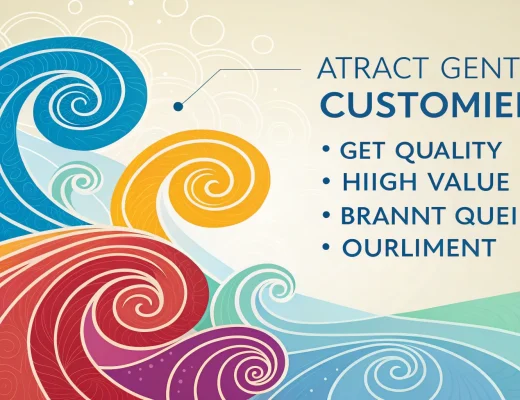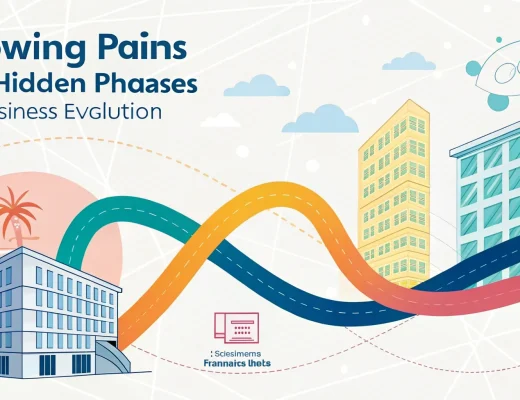Effective leadership is crucial for any organization to thrive. To become a better leader, you need to set clear and achievable goals that focus on various aspects of leadership. This article will guide you through essential leadership development goals that can help you enhance your management skills.
Key Takeaways
- Empower your team by fostering accountability, building motivation, and creating a valued work environment.
- Improve communication skills by mastering different mediums, asking the right questions, and ensuring team alignment.
- Develop conflict resolution skills by understanding conflict dynamics, implementing strategies, and promoting harmony.
- Enhance time management by prioritizing tasks, using management tools, and adapting to changes efficiently.
- Build emotional intelligence and empathy by understanding emotional triggers, practicing empathetic leadership, and fostering resilience.
Empowering Team Members for Enhanced Performance
Fostering Accountability and Participation
As a leader, it’s crucial to foster accountability and participation within your team. When team members feel responsible for their tasks, they are more likely to put in their best effort. Encourage everyone to take ownership of their work and participate actively in team discussions. This not only boosts productivity but also makes everyone feel valued.
Building Autonomy and Motivation
Giving your team members the freedom to make decisions can significantly boost their motivation. When people have autonomy, they feel trusted and are more likely to take initiative. This leads to a more dynamic and innovative team. Encourage your team to come up with their own solutions and support them in their decisions.
Creating a Valued Work Environment
Creating a work environment where everyone feels valued is essential for retaining top talent. Make sure to recognize and appreciate the efforts of your team members. A supportive environment where people feel valued can lead to higher job satisfaction and lower turnover rates. This is one of the key leadership techniques that motivate employees to stay and perform at their best.
Enhancing Communication Skills for Effective Leadership

Mastering Various Communication Mediums
As a leader, it’s crucial to be skilled in different ways of communicating. This includes emails, meetings, and presentations. Clear communication helps build strong relationships with your team. By mastering these mediums, you can ensure that your message is understood, no matter how it’s delivered.
Asking the Right Questions
One of the best ways to improve communication is by asking the right questions. This helps you understand your team’s needs and concerns better. It also shows that you value their input, which can boost their motivation and job satisfaction.
Ensuring Team Alignment
To keep everyone on the same page, it’s important to reiterate key points from conversations. This ensures that all team members are aligned and working towards the same goals. Regular check-ins and feedback sessions can help maintain this alignment and foster a culture of transparency.
By prioritizing mental well-being, leaders can enhance their decision-making and create a positive work environment.
Developing Conflict Resolution Skills

Understanding Conflict Dynamics
Conflicts are a natural part of working in a team. They can arise from misunderstandings, differences in opinions, or even competition. As a leader, it’s important to understand the root causes of conflicts. This means recognizing the emotional triggers and the underlying issues that may not be immediately obvious. Knowing the dynamics of conflict helps in addressing the problem effectively.
Implementing Resolution Strategies
Once you understand the conflict, the next step is to implement strategies to resolve it. This can include open communication, active listening, and finding common ground. Sometimes, it might be necessary to bring in a neutral third party to mediate. The goal is to de-escalate the situation and find a solution that everyone can agree on. Productive conflict resolution is key to maintaining a harmonious work environment.
Promoting a Harmonious Work Environment
After resolving conflicts, it’s crucial to promote a positive and harmonious work environment. This can be achieved by fostering a culture of respect and understanding. Encourage team members to express their feelings and opinions openly, and make sure everyone feels valued. A harmonious work environment not only reduces the chances of future conflicts but also boosts overall team performance.
Developing conflict resolution skills is essential for any leader. It not only helps in resolving issues but also in creating a positive and productive work environment.
Improving Time Management for Better Productivity

Prioritizing Tasks Effectively
One of the most important aspects of time management is knowing how to prioritize tasks. Understanding that time is limited helps us focus on what truly matters. I always start my day by listing out my tasks and then ranking them based on urgency and importance. This way, I can tackle high-impact activities first and ensure that I’m making the most of my time.
Utilizing Time Management Tools
There are many tools available that can help us manage our time better. From digital calendars to project management software, these tools can keep us organized and on track. I personally like to color code my calendar to easily see what needs my attention. Tracking your time can also provide insights into how you spend your day and where you can make improvements.
Adapting to Changes Efficiently
No matter how well we plan, unexpected changes can always occur. Being adaptable is key to maintaining productivity. I make it a point to review my schedule regularly and adjust as needed. This flexibility allows me to respond quickly to changes without losing focus on my goals.
Efficient time management is not just about getting things done; it’s about getting the right things done at the right time.
By focusing on these strategies, we can improve our productivity and make better use of our time.
Designing Efficient Processes and Strategies

Identifying Team Strengths
To design efficient processes, I first focus on leveraging team strengths. Each team member has unique skills and talents. By identifying these strengths, I can assign tasks that align with their abilities. This not only boosts productivity but also enhances job satisfaction.
Delegating Tasks Appropriately
Delegation is crucial for efficiency. I make sure to delegate tasks based on each team member’s strengths. This way, everyone works on what they do best, leading to better results. Effective delegation also frees up my time to focus on more strategic tasks.
Maximizing Business Profitability
Efficient processes and strategies are key to maximizing business profitability. By streamlining workflows and eliminating unnecessary steps, I ensure that the team works smarter, not harder. This approach not only saves time but also reduces costs, leading to higher profits.
Designing efficient processes is about finding new ways for the team to work with less effort and time, without compromising on quality. It’s about planning effective processes to ensure maximum business profitability.
Building Emotional Intelligence and Empathy
Understanding Emotional Triggers
To be a great leader, you need to understand your own emotions. This means recognizing what makes you happy, sad, or angry. When you know your emotional triggers, you can control your reactions better. This helps you stay calm and make better decisions, even in tough situations.
Practicing Empathetic Leadership
Empathy is about understanding how others feel. When you show empathy, your team feels valued and understood. A study by the Harvard Business Review found that leaders who exhibit empathy and emotional intelligence significantly outperform their peers. To practice empathetic leadership, listen to your team, acknowledge their feelings, and offer support when needed.
Fostering Emotional Resilience
Emotional resilience is the ability to bounce back from setbacks. It’s important for leaders to stay strong and positive, even when things go wrong. You can build emotional resilience by staying optimistic, learning from mistakes, and keeping a positive attitude. This not only helps you but also inspires your team to stay strong during challenging times.
Cultivating Adaptability in Leadership
Adaptability is a crucial trait for any leader. It allows us to respond quickly to new challenges and fosters innovation. Let’s explore how we can cultivate this essential skill.
Embracing Change and Growth
Change is inevitable, and as leaders, we must be ready to embrace it. By staying open to new ideas and approaches, we can help our teams navigate through disruptive change smoothly. Adaptability is essential for leaders during disruptive change, as it enables quick response to new challenges, fosters innovation, and builds resilience.
Developing Flexible Thinking
Flexible thinking means being able to see situations from different perspectives. This helps in making better decisions and finding creative solutions to problems. To develop this skill, I regularly challenge myself to think outside the box and consider alternative viewpoints.
Implementing Adaptive Strategies
Adaptive strategies are plans that can change as situations evolve. By having a flexible approach, we can adjust our strategies to meet new demands and overcome obstacles. This not only helps in achieving our goals but also in maintaining team morale and productivity.
Being adaptable means being prepared for the unexpected and having the confidence to handle it effectively.
Conclusion
In conclusion, setting clear and achievable leadership development goals is crucial for enhancing your management skills. By focusing on areas such as communication, time management, and adaptability, you can become a more effective leader. Remember to self-reflect on your strengths and weaknesses, and use SMART goals to create a structured plan for improvement. Consistently track your progress and be open to feedback. With dedication and effort, you can develop the skills needed to lead your team to success.
Frequently Asked Questions
What are leadership development goals?
Leadership development goals are specific objectives that leaders set to improve their skills and abilities. These goals help leaders become better at guiding their teams, making decisions, and achieving organizational success.
How can I empower my team members?
You can empower your team members by encouraging them to take responsibility, involving them in decision-making, and creating an environment where they feel valued and motivated.
Why is communication important for leaders?
Communication is crucial for leaders because it helps build trust, ensures everyone is on the same page, and fosters a positive work environment. Good communication skills also help in resolving conflicts and making sure that the team’s goals are clear.
How can I improve my conflict resolution skills?
To improve conflict resolution skills, understand the reasons behind conflicts, learn and apply different resolution strategies, and focus on creating a harmonious work environment. Practice active listening and empathy to better address issues.
What are some effective time management strategies for leaders?
Effective time management strategies for leaders include prioritizing tasks, using time management tools, and being adaptable to changes. Setting clear goals and deadlines can also help in managing time better.
How can emotional intelligence benefit my leadership?
Emotional intelligence helps leaders understand their own emotions and those of others, leading to better decision-making, improved relationships, and a more empathetic leadership style. It also helps in managing stress and fostering a positive work environment.







